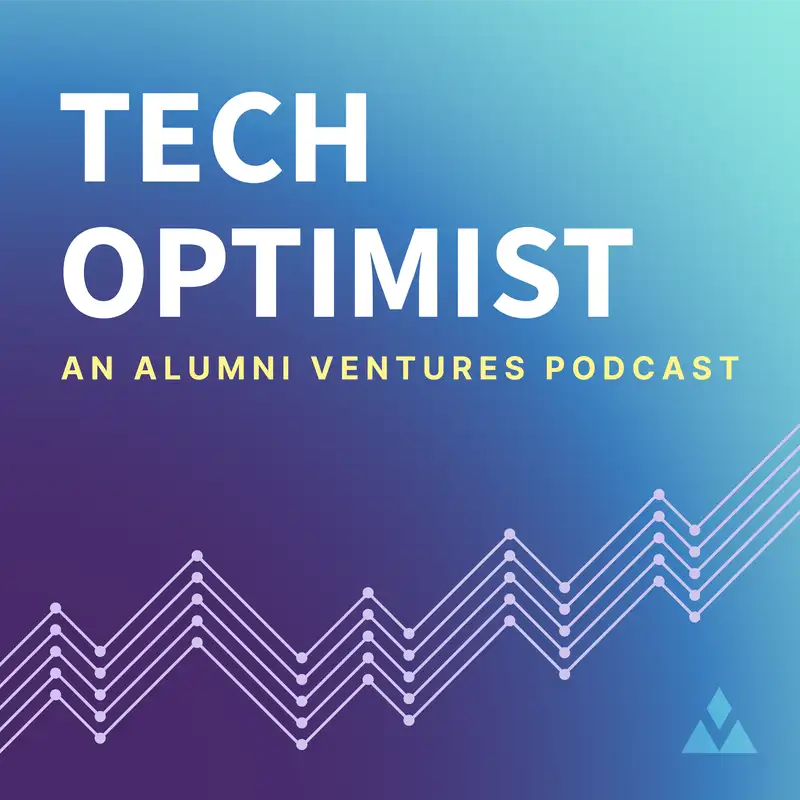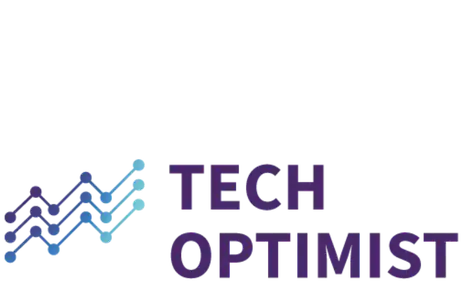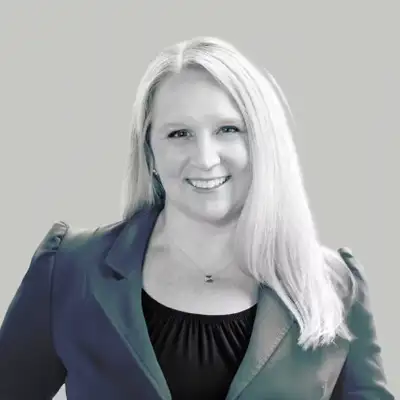#88 - Three Breakthroughs: The latest in AI, Net Neutrality, and Drones
Sam:
Welcome back to the Tech Optimist, the podcast where we uncover the ideas and innovations shaping the future. Today, we're diving into an exciting Three Breakthroughs episode, where we'll explore cutting edge advancements that are pushing the boundaries of what's possible from trailblazing AI models and record-breaking funding announcements to unbelievable tech applications in the natural world. We're uncovering stories from that highlight human ingenuity and our relentless drive for progress. So, buckle up. It's time to get inspired and optimistic about what lies ahead. We're going to get some housekeeping out of the way now, but then we're going to dive right into the show. So, hang tight.
Commercial:
Do you have a venture capital portfolio of cutting edge startups? Without one, you could be missing out on enormous value creation and a more diversified personal portfolio. Alumni Ventures ranked at top 20 VC firm by CB Insights is the leading VC firm for individual investors. Believe in investing in innovation. Visit av.vc/foundation to get started.
Sam:
As a reminder, the Tech Optimist podcast is for the informational purposes only. It's not personalized advice and it is not an offer to buy or sell securities. For additional important details, please see the text description accompanying this episode.
Welcome to the first Three Breakthroughs episode of 2025. Mike Collins and Lucas Pasch dive headfirst in the transformative tech trends shaping the new year.
Mike Collins:
I try to do this with one of our young and rising talents, and this quarter, I'm going to do it with Lucas.
Lucas Pasch:
Thank you so much. And as a recently minted 34-year-old with a newborn, I appreciate being called young and up and coming. I appreciate that.
Sam:
So, they kick things off with a thrilling discussion about AI's unstoppable momentum. From OpenAI's jaw-dropping updates to Google's Gemini research assistant, they unpack how these tools are rewriting the rules of productivity and problem-solving. Next, they explore a fascinating new frontier, physical AI. Lucas highlights NVIDIA's vision for robotics that adapt, think, and act, hinting at a not-so-distant future where AI isn't just digital but deeply integrated into the physical world. The conversation then heats up as they tackle net neutrality's repeal. Mike and Lucas break down the game-changing ruling and its potential impact on internet fairness, innovation, and even your favorite streaming service and how that might play into all of this. And then lastly, they round things out, this episode with a look at drones and how robotics are shaping logistics. From Amazon's decade long journey to launch drone delivery to Waymo's self-driving taxis hitting the streets, 2025 is poised to revolutionize how we live, work, and move. Now, this episode is a roller coaster ride of tech breakthroughs, bold bets, and future possibilities. So, buckle up and let's dive into it.
Mike Collins:
Hey, welcome to the new year and this episode of Three Breakthroughs, an Alumni Ventures podcast. In 2025, we're offering this exclusively to our AV customers. So, it's something that we have something like 11,000 customers now. They value what we're talking about, what we're thinking about, what we're excited about. So, we're going to just hop right into it. It seems like we're recording this on January 8th. The last month has been a little crazy. I just think we have to recognize that the pace of AI is just continuing to be mind-boggling that we have trillion-dollar companies in blood sport and we had OpenAI with the 12 days of AI, introducing new models, new features, new price points. We had a bunch of commentary coming from Sam Altman about feeling that we're on the path to agents, super intelligence that this is now near term, not long term.
And I think just people are very excited about the power of these models. Every day, they're able to solve harder things. I think there's a recognition that some of it is overkill for normal people looking at normal things, but if you're doing hard, hard stuff, there is now a model and a pricing tier that is still disruptively advantageous to you over hiring three PhD students to do the work. I also think it is very clear that Google is in the game in a full-throated way with Gemini. Their research tool, where you put in a prompt, it goes, searches 50-100 websites, writes it research report that is commiserate with an MBA in minutes is just one example of it, as well as access to its reasoning model. So, I was talking to a group at lunch today about AI is more than one thing.
There's definitely the research angle. There's definitely the language model to help you write better. There's definitely reasoning, which takes you through multiple steps of problem-solving that is shipping and it is shipping in a disruptively compelling way. And I think we are on the verge of even more powerful reasoning models. And then I think agents are coming where the ability to take multistep business tasks, break them down, and assign some or all of that workflow to software is coming and coming fast. So, I think just the pace of innovation and change is happening quickly. I think a lot of the inside scuttlebutt is 2025, may even, if not exceed, at least match the pace of 2024. So, I think if we look at how much has been accomplished in this front in 2024, I think we're going to see at least that amount, if not more, in 2025.
So, I think it is impacting jobs today. I think it is starting to impact employment. I think there are groups of small companies that are trying to do the work of big companies. I think there are big companies that are hiring five people, not 50 people. And I think there's efficiency, I think there is quality, and then there are companies like ours, where we're saying it's like, "Hey, we hold the number of people constant, but we want two to three x productivity and outcomes and all the good stuff." So, I think that would be my five-minute flash report around the horn about stuff going on with all these amazing companies.
Lucas Pasch:
Yeah, I think that's an insightful take on where AI is heading in 2025. And I'd be remiss if I didn't add on to that. We're on top of these new powerful models that are driving incredible change in research and in enterprises. You got to think also about Jensen Huang's keynote address at CES earlier this week, where-
Mike Collins:
Must listen. Must listen.
Lucas Pasch:
Yeah.
Mike Collins:
Just credible.
Sam:
Tech enthusiasts, listen up. Jensen Huang, NVIDIA's founder and CEO, brought the house down at CES 2025 with a keynote, bursting with innovation and big ideas. Here's what you need to know from this 90-minute powerhouse presentation. If you haven't seen it already, definitely, definitely recommend a listen and a watch because the keynote is just fantastic. Huang described the first leap in AI evolution, coining it the era of physical AI. This includes NVIDIA Cosmos, a revolutionary development platform designed for robotics and autonomous vehicles, offering tools to build world foundation models for physical AI systems. And then gaming fans, you're going to love this. NVIDIA unveiled the GeForce RTX 50 series GPUs built with Blackwell architecture delivering unprecedented realism and performance for gamers and creators alike. And for developers, Huang introduced Project DIGITS, a personal AI supercomputer designed to supercharge innovation by bringing NVIDIA Grace Blackwell capabilities right to your desktop. Partnerships also took center stage.
So, NVIDIA is collaborating with Toyota to redefine autonomous vehicles and with companies like KION and Accenture to integrate AI across various industries. Robotics was another highlight with NVIDIA teasing major AI advancements in agentic AI and humanoid robots capable of adaptive actions. From AI foundation models to RTX PCs to drone-like robots reshaping logistic, Huang painted a picture of 2025 powered by AI that doesn't just think, it acts. And as he said, this is the year AI moves from digital to physical.
Lucas Pasch:
The tectonic shift that he's talking about in robotics, as well, like the rise of physical AI. For years, the promise of AI has been mostly confined to the digital world, analyzing data, generating content, automating workflows. But NVIDIA's vision and Jensen vision goes a lot further, bringing AI into the tangible physical world where robots aren't just executing deterministic tasks but really thinking and adapting and acting.
Mike Collins:
They're running the whole farm. Yeah.
Lucas Pasch:
Yeah, Yeah, so I don't know if that's a 2025 thing that is in market, but the path is getting illuminated more quickly than-
Mike Collins:
And I do think it's very important for those of us that are interested in technology and innovation in venture capital, it's very important to listen to these voices. And so, I think it's required listening to hear Jensen's CES keynote. I think you've got to look at when Sam Altman does a tweet storm about reflections in 2024, predictions in 2025, you need to read that stuff. They have the most information, the most insight, the most money, and to the benefit of humanity, they are in a now very competitive environment where they're all trying to outdo each other, find their niche, think about what's next before chess moves ahead, and these are all very smart, incredibly talented people. So, one does well by listening intently to these conversations.
And yeah, I agree, Lucas, I think 2025 could be the year of the robot. I think there was cool stuff at CES. Clearly, we've seen this in the drone world where it's redefining military information. You have a $50,000 drone taking out a $5,000,000 tank. So, I think this stuff is going to really start hitting the world of consumers and work a lot in the next 24 months. What do you have? What's your second breakthrough of the week you want to talk about?
Lucas Pasch:
Yeah, so I don't know if breakthrough is the word that I used on this one, but just a hot topic and technology in the internet that has to be discussed, a recent ruling, but by the Sixth Circuit Court of Appeals struck down federal net neutrality protections, which allows now internet service providers, ISPs, to prioritize to throttle or block or promote.
Mike Collins:
They use the Chevron ruling, I believe.
Lucas Pasch:
Yeah.
Mike Collins:
Again, for our listeners that aren't familiar with this that this was a pretty significant, I think, 2024 Supreme Court ruling. It basically said a lot of federal agencies have to really prove that they have explicit mandates to do stuff or prove it in court. And so, it throws into questions a lot. And again, we're not taking sides on good, bad, appropriate ruling or not, but it is the ruling and it has significant impact for regulation. And this is one of the first examples of it, which is, "Hey, Congress did not authorize this agency to do it, so we're striking it down. And if you disagree, let's go to court."
Lucas Pasch:
Yeah. Or if you disagree, Congress like remove political gridlock and actually give us some better guidance on what we can and cannot do. So, in this case, the court basically decided Congress never explicitly told the FCC to treat ISPs like utilities. So, their net neutrality rules were considered to be by this court in overreach, and now, the responsibility for net neutrality ships to Congress, but without free laws, ISPs have more freedom now to dictate how we access the internet and without taking, because there are good points to be made on.
Mike Collins:
Yeah, yeah. For sure.
Lucas Pasch:
The way that I talk about it with people is imagine trying to watch your favorite TV show on Netflix. Maybe you're pulling up Squid Game season two, but Xfinity slows down the streaming performance because Netflix and Xfinity failed to come to an agreement on how much Netflix would pay for the fast lane access. Maybe Netflix is not the best example because they're well-resourced, maybe it's Paramount+.
Those scenarios are a possibility following this decision. And for years, net neutrality has been the principle that all internet traffic should be treated equally, and this court decision flips that on its head and suggests ISPs should not be treated like utilities, rather, they should be responsive to free market dynamics and pressures that encourage quality service and innovation. So, it'll be interesting. ISPs are not just going to turn around. We shouldn't expect ISPs to turn around and be like, "We're going to throttle the crap out of you now because we can," because that would be a terrible customer experience. I think opponents of this new-
Mike Collins:
And if they did that, it would likely lead to congressional action, right?
Lucas Pasch:
Yes.
Mike Collins:
So, this is where businesses are going to, I think, in these cases, try to walk a fine line, which is I want to do enough to maximize value for my business while not triggering legislation, which is explicitly doing what I don't want to be done, right?
Lucas Pasch:
Yeah.
Mike Collins:
So, I think this is a great case study of the profound nature of this ruling and how it can and it will impact people's lives, good and bad.
Lucas Pasch:
Yeah. And we'll see also opponents of what just happened in striking down net neutrality will say, "Okay, sure, you don't want," it is not in the ISPs best interest to throttle people unnecessarily, but a lot of these ISPs operate in somewhat monopolistic capacity in a lot of different regions. So, it's not the free market competitive nature that you would want to make sure that they're keeping a service quality out there for customers. So...
Mike Collins:
This is...
Lucas Pasch:
Interesting arguments-
Mike Collins:
This is always one of the issues, where people just fall back on a quick and easy libertarian, let-the-market-decide things, where if you're in Northern Maine, there's one provider of a lot of services. It is not a free market. And so, if you want to say, "Hey, that's tough luck," that's economically tough beans that you live in a remote area with one ISP provider. Okay, that's the kind of society we want to live in. I don't think that's always the case. I think there are still parts of society and life here where we say, "Hey, we are a community, we are a country. There are things that we want to exist for all people." But again, that's where Congress has to act and be explicit about it and not just, "Hey, we're just going to give this to the FTC and they're going to do whatever the hell they want." Because sometimes, what they do I think is always well-meaning, but isn't necessarily the right way to do it.
Lucas Pasch:
Hey, if it gets more and more expensive to watch Squid Games, you might find an issue here that unites both sides of the aisle.
Mike Collins:
There will definitely be people hauled in front of Congress if their favorite shows are getting throttled.
Sam:
So, let's talk about the major court ruling that could change how you experience the internet. On January 2nd, 2025, the US Court of Appeals for the Sixth Circuit struck down the FCC's net neutrality rules. So, here's what that means. The court decided that broadband providers like your internet company, are classified as offering an information service, not a utility. Because of this, the FCC doesn't have the legal authority to enforce net neutrality. So, those rules that make sure all internet traffic is treated equally. This decision follows the Supreme Court's 2024 overruling of the Chevron Doctrine, which we've talked about quite a few times on this show, which limited how federal agencies can interpret ambiguous laws. Now, internet service providers have more freedom to prioritize, slow down, or even block certain sites or services.
So, now, imagine Sarah, a small business owner in Northern Maine running an online shop. Her internet service is provided by her local ISP available in her area, a common situation in rural communities. With the recent court ruling, eliminating federal net neutrality rules, her ISP can now prioritize certain websites or services for additional fees or throttle access to others. For Sarah, this might mean slower load times for her website, unless she pays extra for a faster service. Streaming platform she uses for marketing or customer engagement like Zoom or YouTube could also face slower speeds if they don't strike deals with her ISP. In areas like hers, where competition among ISPs is almost non-existent, Sarah has little recourse to switch providers. So, this could lead to higher costs for her small business and potentially alienate her customers due to poor online experience.
Meanwhile, in urban areas with more ISP options, businesses may remain relatively unaffected, further increasing the urban-rural digital divide. This example highlights how the court's decision could disproportionately impact those in remote regions, reinforcing the need for state-level protections or alternative solutions to ensure fair internet access. Now, Mike and Lucas here are going to talk about both sides of this argument, where the other side being where we need more innovation in the field, like an opportunity for more people to be innovative and to create solutions around this ruling. Commercial break incoming. Sit tight, we'll be back.
Commercial:
Exceptional value creation comes from solving hard things. Alumni Ventures Deep Tech Fund is a portfolio of 20 to 30 ventures run by exceptional teams who are tackling huge opportunities in AI, space, energy, transportation, cybersecurity, and more. These game-changing ventures have strong lead venture investors and practical approaches to creating shareholder value. If you are interested in investing in the future of Deep Tech, visit av.vc/deeptech to learn more.
Mike Collins:
The last one is again, kind of Amazon, really... I think this is the bigger story of drones. We talked about this a little bit, 2025 being a year of robotics. CES had a bunch of consumer stuff that looked super interesting. There are clearly now robots that are going to come out at the $1,000 to $2,000 range that are going to be able to do things in your home, providing security, providing simple task management. These things are coming. I think they're going to be affordable. I think the delivery, and again, some of this is happening and we're probably a little behind to what's going on in China, but the ability to get food delivery from a drone to drop it on your porch exists there much better than it does in the United States, but Amazon has some stuff coming, and the percentage of Americans who get stuff from Amazon on a weekly basis is enormous.
And so, I think 2025 is the year where... 2024, we started to see with Waymo robotaxis. And for people in San Francisco and a few other markets that have experienced them, they love them. And you look at market share for Waymo in San Francisco is growing up really, really fast. And a lot of things that start in California and bleed to the rest of the country, that just says in five years, that's in Des Moines, and in 10 years, it's everywhere. So, Waymo was the story of self-driving taxis, 2024, I was out in Vegas, was starting to see them. And I think 2025 is you're going to see drone delivery starting to, again, few markets, anecdotal, weird shit happening that'll make the local news. But I think that this is 2025 is going to be the year where you're going to get your stuff dropped on your porch.
Lucas Pasch:
Yeah.
Sam:
So, let's talk about Waymo, the autonomous driving company that's been redefining how we think about transportation. Their journey from experimental tech to practical innovation is nothing short of remarkable. Waymo vehicles have now covered over 40 million miles on public roads, including operations in urban hubs like San Francisco and Phoenix. In fact, in 2024, Waymo saw a 30% year-over-year increase in ride requests across its operational cities with over 250,000 monthly users opting for self-driving rides.
So, what's fueling this growth? Waymo's ability to operate efficiently and complex environments is what is fueling it. Recent reports highlight their Phoenix operations, where 80% of rides are fully autonomous with no backup driver on board. Meanwhile, in San Francisco, they've seen significant adoption with 50% of rides autonomous, a huge leap compared to just two years ago. Waymo's impact is expanding beyond the consumer market, as well. Partnerships with logistic companies are piloting autonomous delivery and freight services contributing to Waymo's $2 billion revenue forecast for 2025. So, whether it's commuting, delivering packages, or simply navigating city streets, Waymo is accelerating toward a fully autonomous future. And it seems like 2025 is shaping up to be the year where self-driving truly becomes the mainstream.
Lucas Pasch:
I think 2025, on Waymo, I think 2025 is the year where at least in San Francisco, you have more Waymo rides by volume over the course of the year than you do driven Uber and Lyft rides. I think its-
Mike Collins:
You look at the charts, it's just happening, right?
Lucas Pasch:
Yeah. And for Amazon and the drone delivery program, what a testament to how much effort and resourcing this takes. Jeff Bezos first announced Amazon's drone delivery program, I think it was like a 60 minutes episode in 2013, and it felt like a really big audacious claim, this symbol of Amazon's obsession with pushing boundaries. But it took over a decade to materialize. But I think this is the year, 2024, that were, FAA shifted its guidelines about letting Amazon operate its drones out of sight. So, it officially made it possible for them to take this on, and they've been launching in Arizona and Texas. I think they've already sent, they say thousands of packages in those two states. There's not a lot of detail, but they're finally taking flight. They have a lot of ground to work on for coming down the cost curve. The New York Times did a big expose on their program just a few weeks ago. I think they could only operate like seven drones inside of an hour right now, and it's one package at a time.
Mike Collins:
Yeah, it's sucking.
Lucas Pasch:
But it's happening though and it's cool to see them take flight.
Mike Collins:
No, and again, I think it also points to a couple of things. One is, listen, we all believe in capitalism. We hate monopolies, we want innovators, but sometimes, things just take a lot of money and a lot of time. And it takes a entrepreneurial persona who just is going to be insanely committed and persistent and gritty to solve problems. And Bezos falls into that category, which he has, for 30 years, been willing to make big bets, big investments, do hard things, fail, do things that take a decade of trial and error, and sticking with it.
And yeah, he's one of the richest men in the world because he's basically compounded a bet in one company over and over and over again for 30 years. And so, I'm not deifying him or Musk or any of these guys, but I think you have to acknowledge that society gets moved forward by innovators and innovative companies doing hard things and doing things that are more than just what's going to be a quick buck for the next quarter. So, I think when they solve, when they have breakthroughs like Waymo, again, think of the money, the time Google put into that to just make it work in one city, enormous, probably beyond the capital of private venture capital. It took a huge company willing to make a big ass bet for a long period of time to see that, but that's worth doing. So, hats off, drones, AI, innovation, 2025 is going to be a amazing year. Buckle up.
Lucas Pasch:
Buckle up indeed. It's going to be a ride.
Mike Collins:
All right, we'll do it again next week. Thank you, Lucas.
Lucas Pasch:
Thanks, Mike. See you.
Sam:
Thanks again for tuning into The Tech Optimist. If you enjoyed this episode, we'd really appreciate it if you'd give us a rating on whichever podcast app you're using and remember to subscribe to keep up with each episode. The Tech Optimist welcomes any questions, comments, or segment suggestions. So, please email us at info@techoptimist.vc with any of those and be sure to visit our website at av.vc. As always, keep building.







